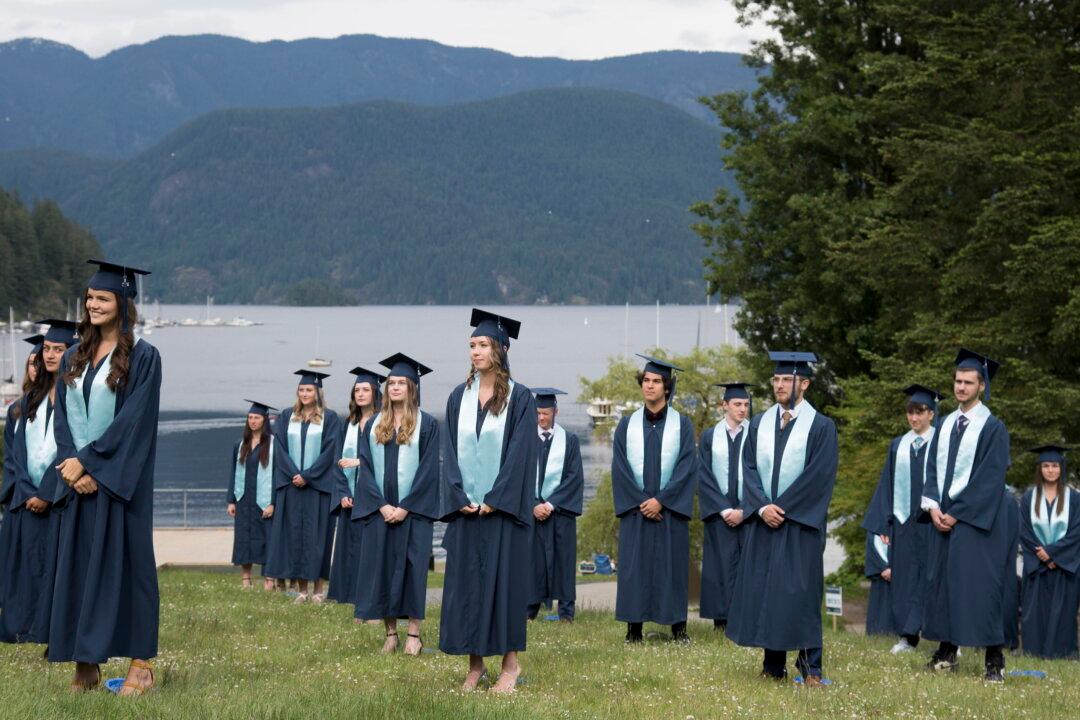OTTAWA—The Canadian Paediatric Society is calling on education ministries to allow safe, in-person graduations for students to help give them closure and support after a challenging end to the school year due to the COVID-19 pandemic.
The association said it’s concerned that students moving on to middle/intermediate school, high school or to college, university or the workforce will not experience the usual transition and celebration that comes with their achievement.





